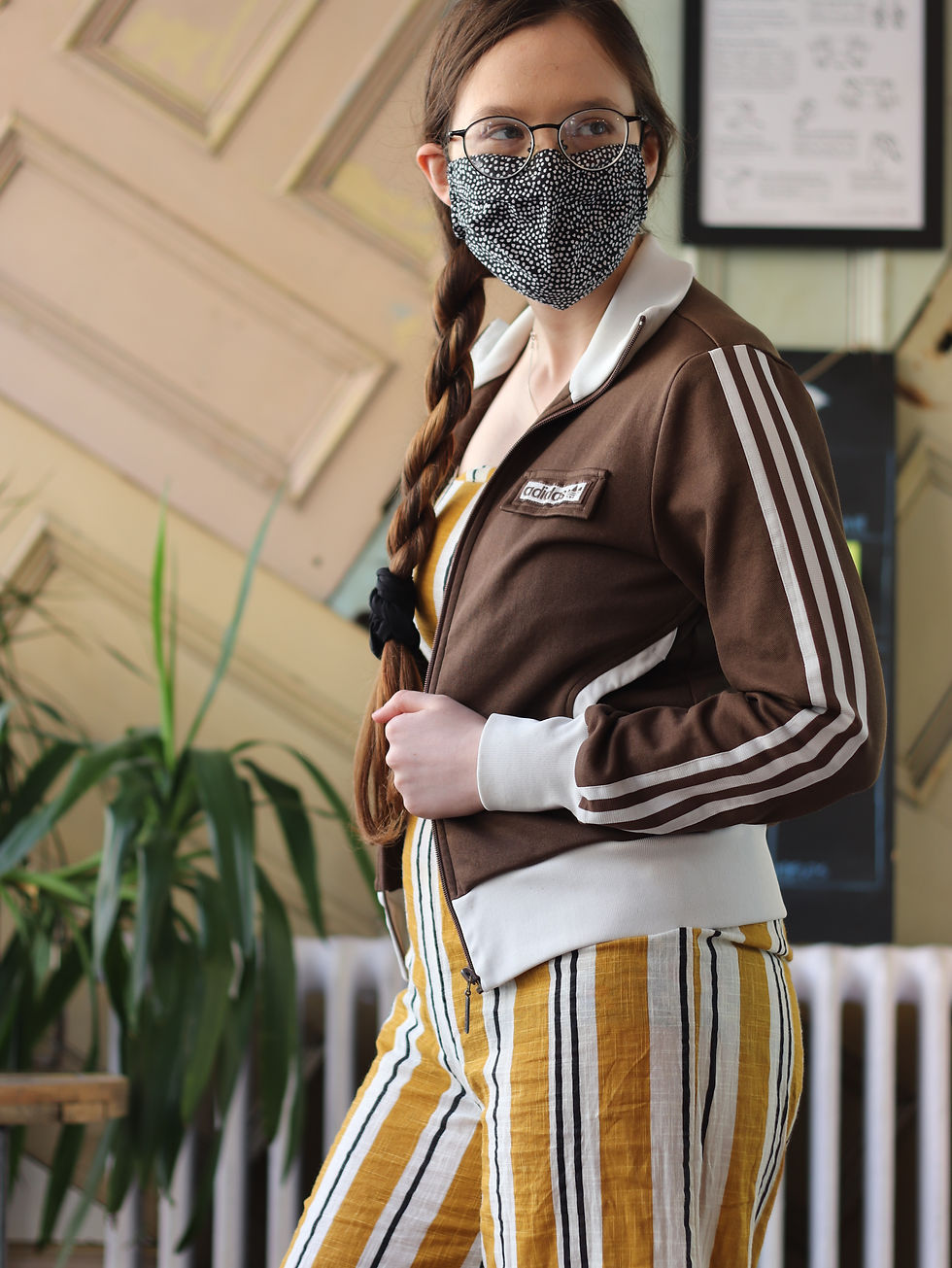Strut Your (Sustainable) Stuff
- Aislinn Redbond
- Apr 18, 2022
- 3 min read
By Aislinn Redbond
18/04/22
Fashion Revolution Week is a chance for action, education and empowerment.
It can be overwhelming learning about all the atrocities that the fashion industry involves. One need only read our articles ‘A Less-Than-Cheerful Assessment of the Fashion Industry’ (Part I and Part II) to understand just how many issues the fashion industry is hiding behind its glamorous catwalks. However, Fashion Revolution is not in the business of shaming individuals in the pursuit of systemic change. Instead, the focus is on educating people on how to change their attitudes towards fashion and encouraging everyone to demand higher standards from fashion conglomerates. So how do we stay optimistic and stylish at the same time?
The Fashion Revolution website offers a number of different ways to engage in fashion activism. Given that the industry carries a number of concerns, from human rights, and women’s rights in particular, to environmental violations and unsustainable resource use, the two hashtags #WhoMadeMyClothes and #WhatsInMyClothes challenge fashion brands to be transparent about how their products are designed and manufactured. This in turn encourages them to address the exploitative practices in their supply chain and contributes to the fight for change in the industry where brands respond to consumer demands.

The hashtag #WhoMadeMyFabric is also presented as a means to promote justice across all areas of the supply chain, not just in the manufacturing stage. Before work begins in the garment factories, a litany of environmental abuses have occurred in the production of fabrics, and in many cases, the farmers growing these resources are not paid a fair price for their labour. During Fashion Revolution Week, social media is an important tool to spotlight these issues and mobilise people across the globe to consider the implications of how their clothes were made.
Fashion Revolution also encourages consumers to get in touch with brands directly, either through social media message channels, or writing an email, in order to ask questions about the policies in place to protect workers and the environment. As the second most at-risk industry for modern slavery, it is again the pressure from consumers that can hold companies accountable for their complicity in unsafe and unjust business practices and usher in reform.
There will be a number of educational events hosted during Fashion Revolution Week too, with the schedule available here. These events will take place all over the world, spotlighting different issues and workshopping potential solutions to the crises of the fashion industry. The Fashion Open Studio is also a great chance to see the innovation occurring from within the industry itself, connecting consumers with designers and providing unique insight into the potential for transformation in fashion.
Of course, fashion activism is not an isolated movement that ends at the end of Fashion Revolution Week. These questions and actions are meaningful forms to engage in collective action, but we have the chance to carry these lessons through to our everyday lives too. By quitting fast fashion, or at least dramatically reducing our reliance on it, we can help to fight human rights injustices and reduce our environmental impact, and there are numerous tools out there to help with this transition. Focusing on keeping our clothes for longer helps to eliminate textile waste going to landfill, and shopping secondhand, renting clothing or just swapping with friends and family means that less resources are required to shake up our wardrobes, further protecting the environment. Here at Shrub Coop, we’re here to help you on this journey. You can find a great selection of clothing available in our Swapshop or through our Depop and eBay, from jackets and jumpers to shoes and handbags. And if you find yourself growing tired of one of your old favourite items, instead of throwing it into landfill or donating it to a clothes bank (where it will likely be downcycled), you can bring it into us and we’ll help find your clothing a new loving home. For Fashion Revolution Week and beyond, we can prove that a more ethical fashion industry will never go out of style.
Resources to learn more about quitting fast fashion:

.png)
